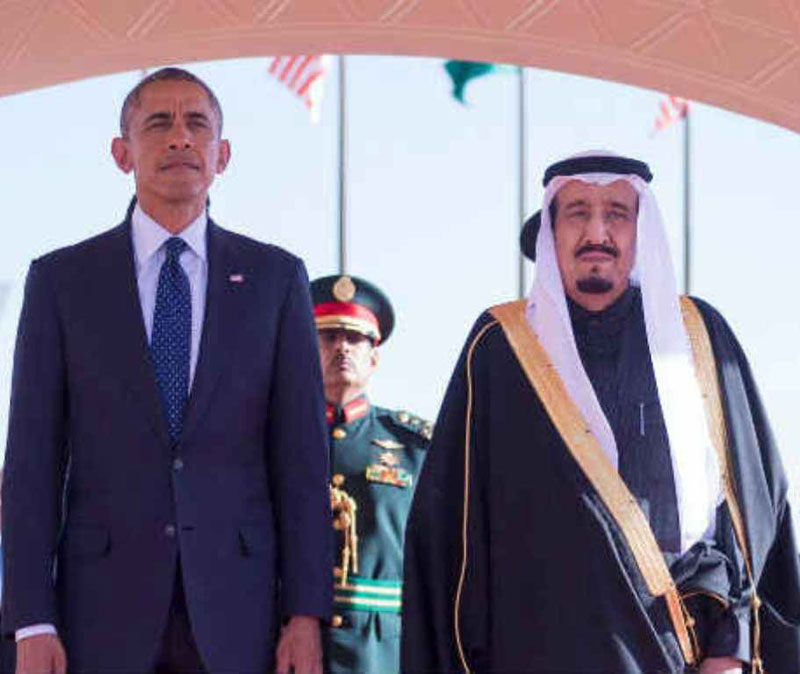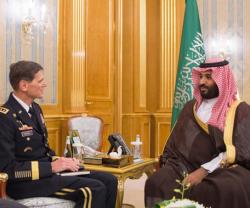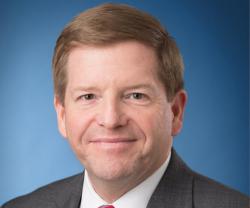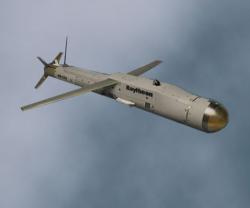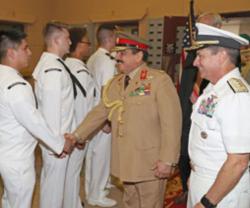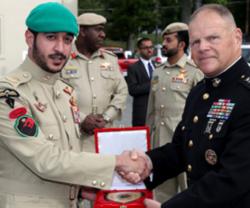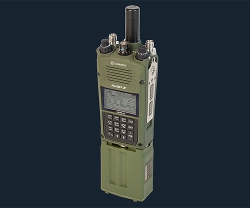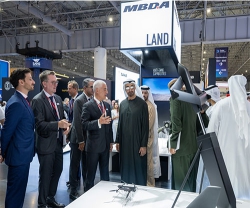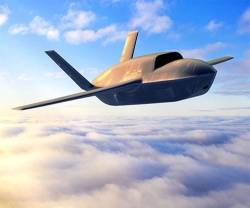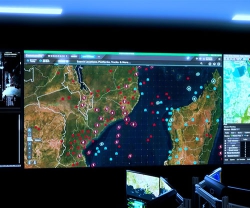USPresident Barack Obama and Gulf Arab leaders concluded talks in Riyadh last week at a summit aimed at forging joint action on perceived security threats from Iran and Islamic State (IS), and at ironing out strains in their alliance.
The Gulf Cooperation Council (GCC) countries and the US agreed to conduct joint patrols to stop any Iranian arms shipments reaching Yemen, Dr. Abdullatif bin Rashid Al-Zayani, Secretary General of the GCC, said following a meeting between GCC Defense Ministers and US Secretary of Defense Ashton Carter ahead of the summit.
At a joint press conference with Carter, Al-Zayani described the meeting as constructive in which military cooperation ties between the two sides as well as ways of enhancing joint cooperation in several fields, including missile defense system, maritime security, armament, military training and cyber space security were discussed.
The GCC Ministers expressed concern over Iran’s efforts to destabilize the region’s security and stability, its interference in the domestic affairs of the region’s countries, he was quoted as saying by Saudi Press Agency (SPA).
He added that the US Secretary of Defense vowed to stand by the side of the GCC against such practices, and provide training to the GCC armed forces through joint bilateral or joint land, air, air defense and naval and military exercises to upgrade the battle preparedness of the armed forces of the GCC countries.
He also cited the military medicine, supplying and communications as other areas for cooperation between the two countries.
The GCC countries also supported expanded cooperation on cyber security, endorsing peacetime cyber norms codified by Saudi Arabia, the US, and other G-20 countries.
For his part, Carter stressed his country’s commitment to security in the GCC.
“During our meeting today, we focused on a number of principles, including defeating Daesh, confronting Iran’s activities aiming to destabilize the region and supporting efforts of stability and security in the Middle East,” Carter added. - Reuters and other sources
At the summit, the U.S. expressed its readiness to support GCC efforts to diversify their economies, provide more effective governance, and adapt to economic challenges posed by low oil prices and changing demographics, UAE national news agency WAM reported.
Toward that end, GCC countries endorsed a U.S. proposal to inaugurate a ministerial-level GCC-U.S. economic dialogue in 2016, to supplement the activities undertaken under the GCC-U.S. Framework Agreement on Economic, Trade, Investment and Technical Cooperation of 2012.
Leaders reaffirmed the mutual benefits of cooperation on climate issues, and committed to work toward the adoption of an amendment to the Montreal Protocol in 2016 to phasedown hydro fluorocarbons.
Leaders committed to continuing coordinating closely on issues of mutual concern, including through meetings of GCC and U.S. Secretaries of State and Defense, and support for an annual leader-level summit.
The US welcomed GCC interest in opening an office in Washington to advance cooperation, and will support efforts toward that end. Leaders also directed that all U.S.-GCC working groups meet at least twice annually, to advance partnership on counterterrorism, streamlining the transfer of critical defense capabilities, missile defense, military preparedness, and cyber security.

